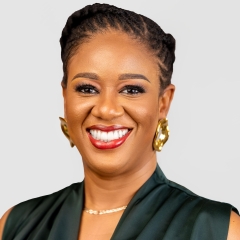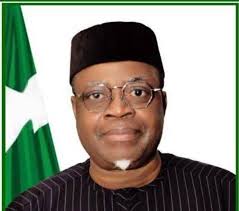
Esther Oritse
Lagos — Maritime experts and stakeholders have raised concerns about the challenges confronting Africa’s blue economy initiative, emphasizing the need for swift, actionable solutions to harness the sector’s economic potential for the continent’s prosperity.
Speaking on Day 2 of a side event at the recently concluded 29th United Nations Climate Change Conference of the Parties (COP29), Ms. Maria Ogbugo of Maritime Associates Africa highlighted Africa’s limited presence in global shipping. “Our fleet represents about 2% of the global total, most of which is aging. We must consider how new fuel standards and pricing mechanisms will affect us,” Ogbugo stressed, calling for deliberate efforts to increase African ownership of vessels.
Themed “Unlocking Economic Opportunities for Africa’s Marine and Blue Economy”, the event hosted by the Leading Effective Afrocentric Participation (LEAP) project spotlighted Africa’s maritime sector’s future.
Experts discussed the challenges and opportunities presented by decarbonization, technological advancements, and infrastructure demands.
Kidanua Gizaw, a senior climate finance officer at the African Development Bank, warned that unless Africa promptly addresses its significant challenges, the continent may miss out on key opportunities in the global marine industry.
Similarly, Mr. Michael Mbaru from the Kenya Maritime Authority highlighted the implications of the International Maritime Organization’s (IMO) decarbonization strategies.
“This raises questions about our ability to retrofit existing fleets, adopt new technologies, and remain competitive,” he said. He also pointed to the financial and logistical challenges of creating new bunkering infrastructure to support alternative fuels like hydrogen or ammonia.
Mbaru further warned of potential job losses for seafarers and port workers, as decarbonization could render some roles obsolete.
However, he also acknowledged the potential for new opportunities. “This transformation can create green jobs, but we must ensure that our workforce is adequately trained and prepared for the future of the marine sector.”
Dr. Oma Ofodile, Director at the Nigerian Maritime Administration and Safety Agency (NIMASA), underscored the importance of stakeholder engagement in sustainable economic development within the maritime sector.
“By focusing on capacity building and economic empowerment, Africa can meet the challenges of climate change and emerge as a frontrunner in the green maritime economy. Significant investments in education, infrastructure, and community engagement are needed to leapfrog into the next industrial revolution,” she said.
From the private sector, Mr. Stanley Ahorlu, CEO of Prime Meridian Docks Ghana Limited, highlighted the critical role of private investment. “The private sector has a significant role to play in this transition. Securing investments in the maritime sector should align with climate goals. By creating attractive financial mechanisms, we can stimulate investment in maritime infrastructure,” Ahorlu stated.
Winfred Shonde from TEEMO Africa, representing the Office of the Vice President of Tanzania’s, emphasized the importance of partnerships with international organizations and public-private collaborations to mobilize resources and build the necessary infrastructure.
Experts reaffirmed the urgent need to address Africa’s maritime challenges while leveraging opportunities in the blue economy to ensure economic growth and sustainability.



